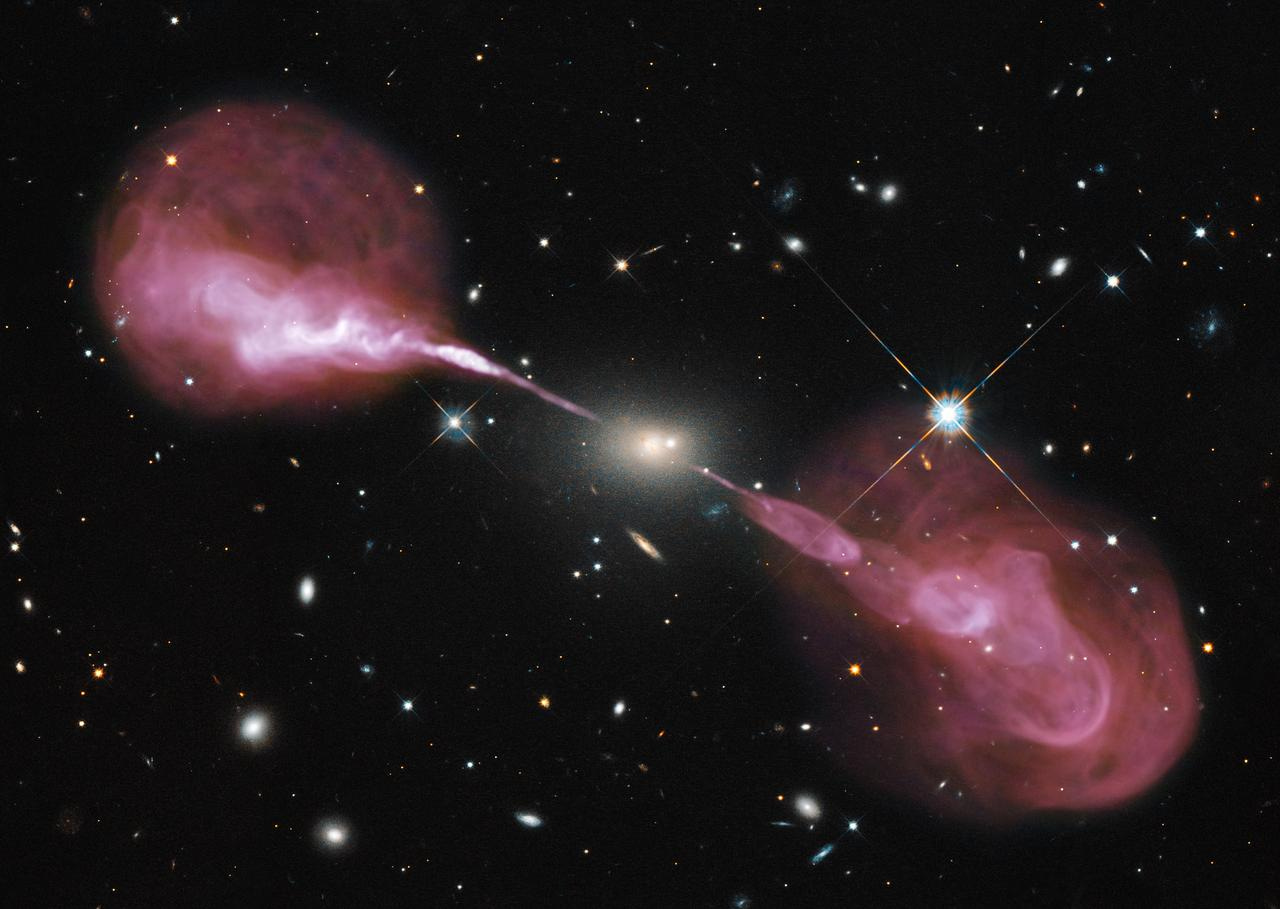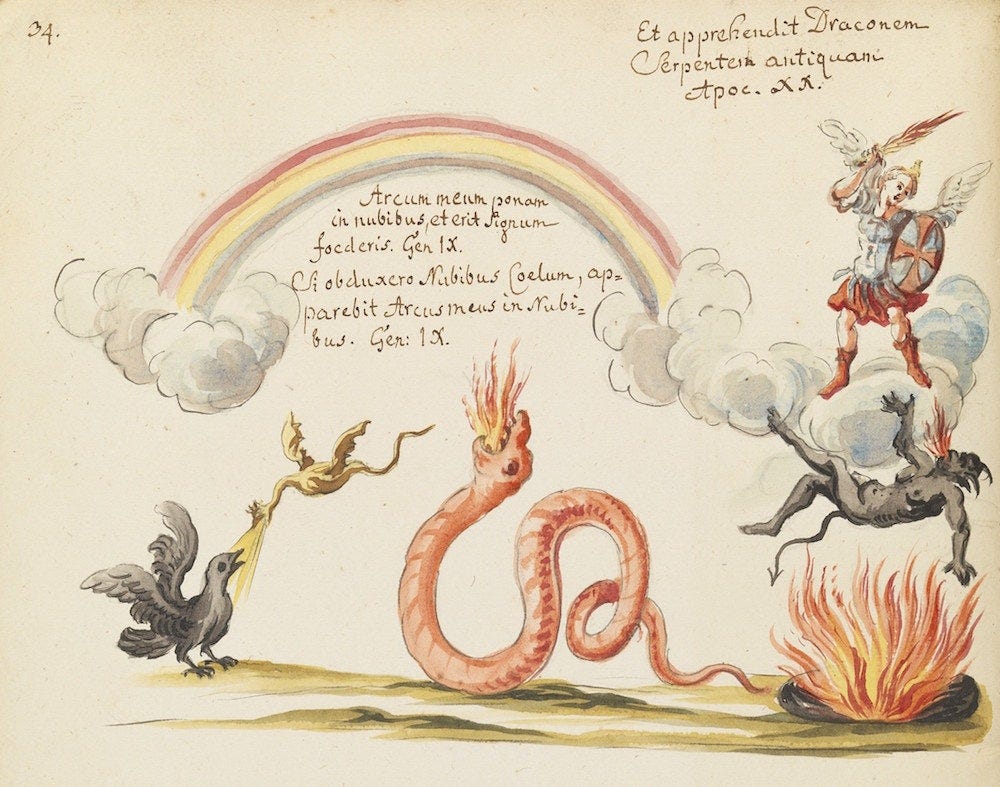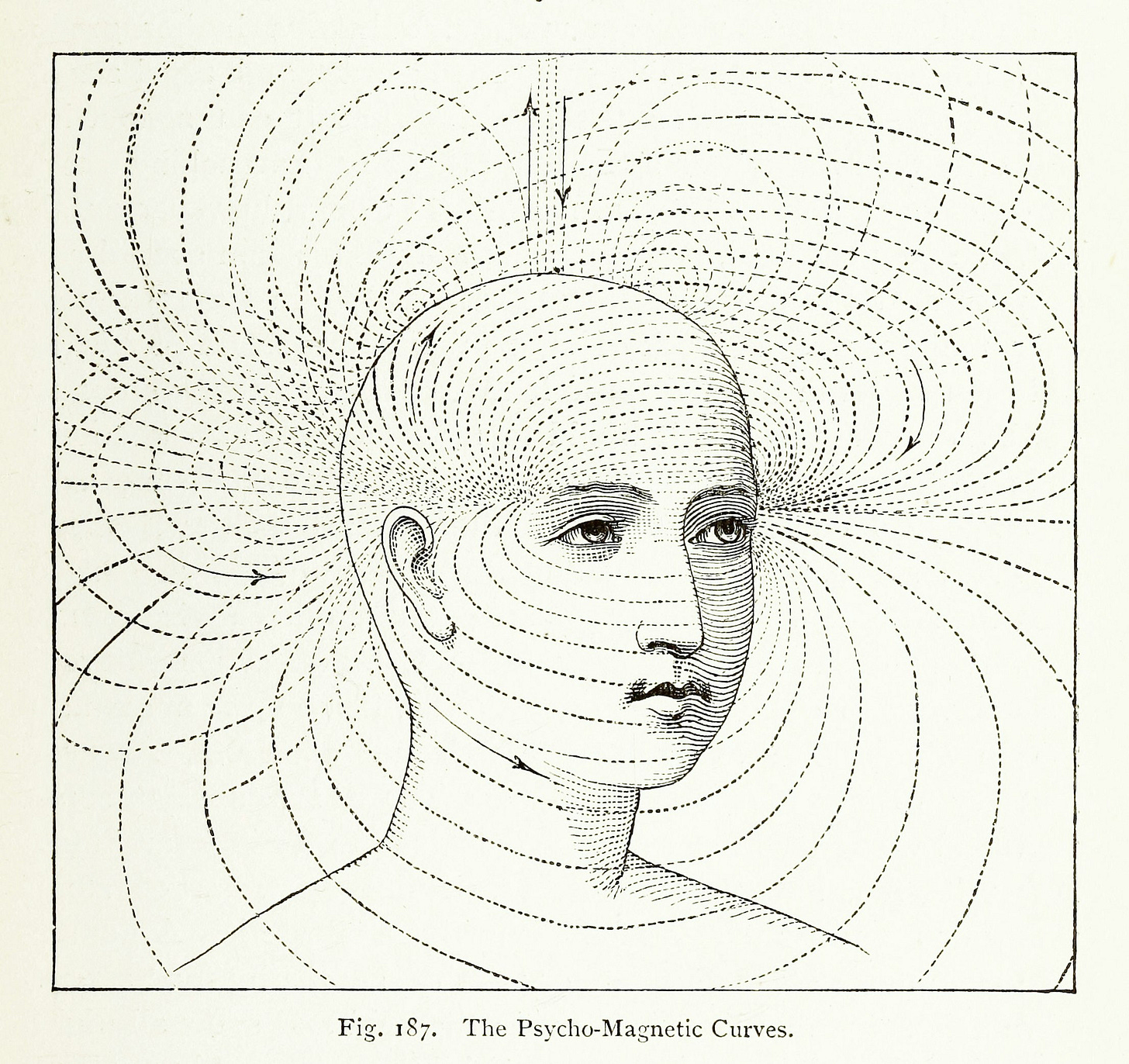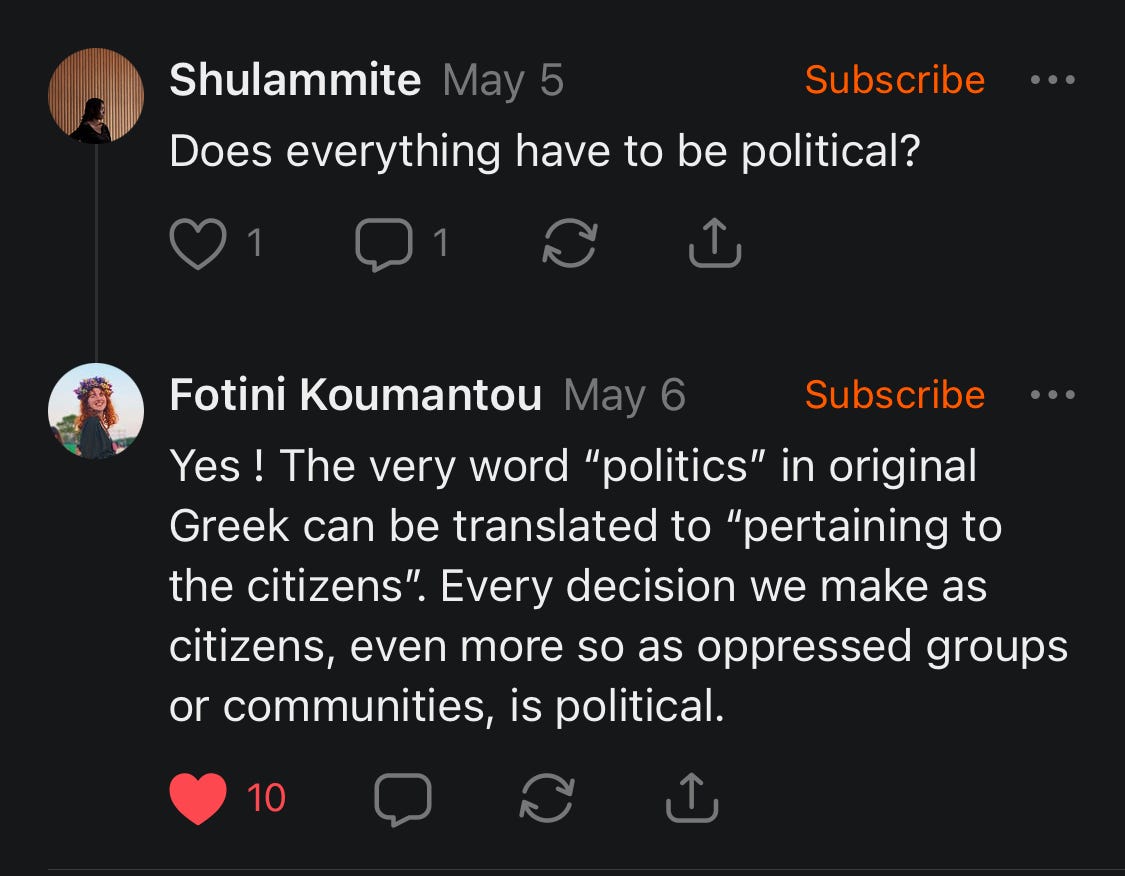Exploring Beyond the Visible Spectrum
What do space, politics, and bad art have in common?
Hi,
I love astronomy. There's something so mind boggling about the universe that just never gets old to me, especially as we learn more and more about everything that's out there with more advanced equipment and techniques. It reminds me how we're all so small and brief. It can freak some people out, but to me it is freeing.
One thing I find fascinating about astronomy is how light appears so different to us depending on its wavelength. The biggest telescopes on earth don't see light that is anything like the light we see with our eyes, instead detecting the giant waves of photons we call radio waves to help us see and understand things no human eye could ever perceive on its own. It's odd to think about, but we're all walking around every day in an electromagnetic soup of particles that we're completely unaware of. That's how your wi-fi works, and that's how telescopes can help us see things in the infrared, ultraviolet or even radio wavelengths of the electromagnetic spectrum.

When I first learned about the different wavelengths of light in the context of astronomy, and how astrophotographers use colour overlays to represent this light we can't see, I felt a bit disappointed. It made me feel like the photos we see of nebulae, galaxies and even our neighbouring planets are artificial in some way. That they're a lie, like an over-airbrushed model on a magazine cover or the shiny, glycerin-drenched burger on a fast food menu. When you see an image from NASA of a constellation of colours and a dazzling array of stars, is it all just some trick to make you think things are more majestic than they are? What does it really look like?
The problem, despite my initial impression, isn't that these images are lies. The problem is that our eyes only see a tiny sliver of the spectrum of light in the universe. We can't augment our eyes, and so instead we need to translate light that our telescopes can see into colours our eyes and our brains can perceive. This isn't just to make pretty pictures, though, since this is actually how astronomers can discover new things about the universe.
I love this because what we're doing is using technology (a human creation) to reveal new ways of understanding the world around us. It's a tangible expression of our creativity being used to move things forward in a new direction.
It's a trick we can use to discover a truth.
I don't know about you, but when I'm in a bad mood I can find a way to tinge everything around me with that feeling, even if it's incredibly benign. My therapist first helped me realize when I’m doing this and taught me to describe this experience as having my "shit covered glasses" on. It's a pungent metaphor.
I'm sure you've had this experience, too. You might have had a bad sleep, or your anxious about work or something entirely unrelated to your life (the world, politics, something a stranger said online) and suddenly, that vibe appears everywhere you look. Your dog is suddenly the most frustrating thing in your life. A person cuts you off and you're ready to take them down in a fiery car crash. Your partner of friend interrupts your miserable train of thought to tell you something they're excited about and all you can feel is frustration and rage. With your shit covered glasses on, everything around you starts to look like a big pile of shit.
The trick is to notice when the glasses are on (which can be tough! You'd think you'd be able to smell them), and to try to force yourself to take them off and see things as they really are. I find this metaphor so helpful because it reminds us of our subjectivity. It reminds us that the way we see things isn't the objective truth of how things really are.
This is a trick we can use to remind ourselves of the truth.
When we try to decode or examine anything around us, it's worth considering if the lens you're looking through reveals something you otherwise couldn't see or if it covers everything in its own haze. Are you applying a lens that helps you see things in a new way? Or are you only forcing things to fit into a point of view that you're committed to? Are you translating something to understand it better or over-simplifying the world so you don't need to understand anything at all?
I think of this any time I see people arguing about if something is "political" or not. It's a debate that I don't really understand, but that this framing around lenses might help us figure out.
One side will point out that "something is political because something about politics occurs around that thing." They apply a political lens to something (a work of art, a philosophy, a behaviour, a social group, etc.) and try to show how that lens reveals something about the thing they're examining. This is usually done to try to address an issue or to understand something better.
The other side of the debate rejects this. They don't think that the lens being applied is revealing something. They say that it's just wearing "politics covered glasses" so that everything you look at has this political edge to it that isn't always actually there. There's usually frustration, exasperation and a bit of condescension in these replies, too, but we'll leave that to the side for now.
I saw this happen recently here on Substack, where someone (Summer) made an observation about the unexamined politics around running, arguing that there's a privilege to being able to go run safely in your neighbourhood that many people who do it don't consider. I saw so many replies that rejected the idea. "Running is just running." "Not everything needs to be political." "You're not special. Stop trying to be a victim." Those replies were what inspired this post (I would link back to the more “inspiring” ones, but it seems like many of those replies have been deleted).
So, who's right? Is the "political" lens one that, like a telescope, can reveal things we otherwise wouldn't see? Or is it just a political-shit-covered pair of glasses we use to justify feeling disgruntled and at-odds with the world?
Is this question even worth asking? I don't really think it is.
The Chinese political activist and artist Ai Weiwei said "Everything is Art. Everything is Politics." This has become my favourite quote about art and politics. It's concise. It's easy to remember. It pisses people off. It, originally, made me laugh because of how broad it was (and how incurious I was about it at the time). What I love most about it is how it uses this intense certainty and all-encompassing definition to, at first, appear to oversimplify something when, the more you think about it, it actually allows for way more depth and thought to take place by getting past the surface-level definitions of things.
I've talked about this before, but I think the key to this argument around if things are or aren't "art" or "politics" is largely a waste of time. When we get into these debates, we're rarely in a philosophy classroom talking about the abstract concepts of art or politics. This is usually brought up while we're talking about something else. A disingenuous politician might say that it's not appropriate to "politicize" an issue (as though it's possible for a politician to do anything without it being political). In another case, a frustrated artist might declare that something isn't "art" because it's so derivative, unimaginative or shallow (especially if it's also very popular, successful or acclaimed). In both these cases, the conversation is being shifted away from the subject being examined and instead into the world of taxonomy and definitions. It's an avoidance tactic and I don't think most of us are aware of it when we do it.
In our debate about if something is or isn't political, the person saying some things just exist with no political context are saying there's a limit to what we can know about something. Their telescopes have seen as deeply into the sky as you can, and they know there's nothing else to be found there. It's a fundamentally incurious position, and it limits what we can do. If cars, policing, food, sports, dance or video games aren't political, then what are they? Similarly, if those things aren't art... what else is there? This position always seems to want things to be simple. Sometimes a chair is just a chair. Or is it?

When someone tries to point out the artistry of something, or the political underpinnings of another, they're trying to understand something more deeply. To reject that is simply lazy. It's an ostrich sticking their head in the ground and pretending something isn't there. You might not like that everything is art and everything is politics, but that doesn't mean they aren't.
Next time you feel this way, ask yourself why you want that to be true. Maybe the better response to someone saying "running is political” is to say "I don't like how that makes me feel," instead of saying "you just want everything to be political." You can do something with one of those responses. The other just shuts everything down.
That's what I love about Ai Weiwei's statement. If we simply define everything as both Art and Politics, then we side-step that distraction or denial and get to the actual issue at hand. We get to examine things through these lenses and dig deeper into things instead of circling around the same pedantic point to avoid the actual issues.
Art and Politics are the same thing. They're human creations that are rooted in the very core of our society. The earliest things we did as humans was organize and express ourselves. We painted cave walls and we formed groups. We created tools and we collaborated on using those tools to be more successful as a species. I don't think anything we've ever done isn't political and I don't think anything we've ever made isn't art. What else is there?
It's like trying to see colours you can't see with the human eye. No matter how hard you try, you can’t just see new colours. You have to translate them into the colours we can see.
With love, politically,
Simon 🐒




